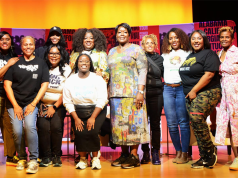By Glenn Ellis
“We hold these truths to be self-evident, that all men are created equal, that they are endowed by their Creator with certain unalienable Rights, that among these are Life, Liberty and the pursuit of Happiness”
-The Declaration of Independence-
Ask anyone what the one topic that seems to be on the lips of all the Democratic Presidential Candidates, and they will answer: Healthcare for All.
But few of us have really stopped to think about who “All” is referring to. And how are we defining healthcare?
Sadly, the focus of the advocates of Medicare for All, is centered on health insurance. But we clearly must take a look at some of the deeper issues. Even having some type of insurance is no guarantee of health status. There are differences in the healthcare provided, and the health status between those with Medicaid, Medicare, private insurance, and those uninsured. I think we all know better to think that any of the proposals by the candidates is suggesting that Healthcare for All will mean that everyone will receive the same care. It ain’t gonna happen.
Somehow, the most disadvantaged within the healthcare and medical system in this country have allowed this conversation to take place at “30,000 feet in the air”, forgetting about the barriers, obstacles, and bias that impact those on the “ground.”
Who are these folks on the “ground”? Children; seniors; the homeless; and of course, people of color – particularly African-Americans.
There are mounds of research and studies that have conclusively documented that the disenfranchised parts of our society are left behind, if not forgotten.
Here are a few facts that you may need to be reminded of:
- According to the American Academy of Pediatrics, “Significant child health disparities exist by race, ethnicity, and immigrant status. Across a range of health conditions including infant mortality, obesity, and asthma; children of racial and ethnic minority backgrounds fare worse than their majority peers.”
- Children living in poverty are more likely to have risk factors such as obesity and elevated blood lead levels, affecting their future health prospects.
- Older adults face their own set of disadvantages, including decreased cognitive and physical capabilities, entering into a period of fixed income or having to work at an older age, and experiencing the onset of many diseases that generally come later in life. The unmet needs of prescription drugs for the elderly, coupled with the lack of good access to homecare and nutritious food is a shameful disgrace. Health disparities are affecting black and brown elders and will worsen as this population grows in the coming years.
Somehow, we must not forget to mention the 800-pound gorilla in the room. The thing that is central in all of these subpopulations, even more than race: poverty.
Health disparities are directly associated with higher levels of poverty. The state of insecurity that poverty creates has been demonstrated to cause more mental distress than war, leading to higher blood pressure, increased levels of stress, and drastically higher levels of depression.
Mental distress brought on by financial strain can then be passed on to children, leading to poorer health and education outcomes that occur even if an individual’s financial state later improves. The experience of poverty at any stage of life may impact individuals’ health as they age. It is estimated 14.6 percent of older adults are currently living in poverty.
Being raised in poverty puts children at risk for a wide range of problems, including impaired cognitive, social, and emotional functioning, as well as poorer health. Child poverty is also associated with negative outcomes in adulthood.
Blacks and Hispanics often get less effective health care than whites. They often get more unnecessary and economically inefficient care. It holds true from the cradle to the grave. Even at the end-of-life, while 5 percent of white Medicare patients with dementia received a feeding tube, 17 percent of blacks and 13 percent of Latinos did.
For the first time in our history, the United States is raising a generation of children who may live sicker and shorter lives than their parents. It doesn’t stop there.
As reported in Time, “Researchers from the New York University School of Medicine recently used data from NYU Langone Health’s City Health Dashboard to find that 56 of the U.S.’ 500 largest cities are home to people who can expect to live at least 20 fewer years than those in other neighborhoods, even if they’re just blocks or miles away”.
That’s right. Where you live can determine how long you live. In fact, right here in Philadelphia, you will die 20 years sooner if you live in parts of North Philadelphia, than you would if you lived in Rittenhouse Square in Center City Philadelphia.
If we are to make it possible for everyone to enjoy “life, liberty, and the pursuit of happiness” as promised in our nation’s founding documents, then we must take an honest and objective look where we are falling short, and demand that the words in the Declaration of Independence ring true: That to secure these rights, Governments are instituted among Men, deriving their just powers from the consent of the governed,
That whenever any Form of Government becomes destructive of these ends, it is the Right of the People to alter or to abolish it, and to institute new Government, laying its foundation on such principles and organizing its powers in such form, as to them shall seem most likely to effect their Safety and Happiness…
Glenn Ellis, is Research Bioethics Fellow at Harvard Medical School and author of Which Doctor?, and Information is the Best Medicine. For more good health information visit: www.glennellis.com.




